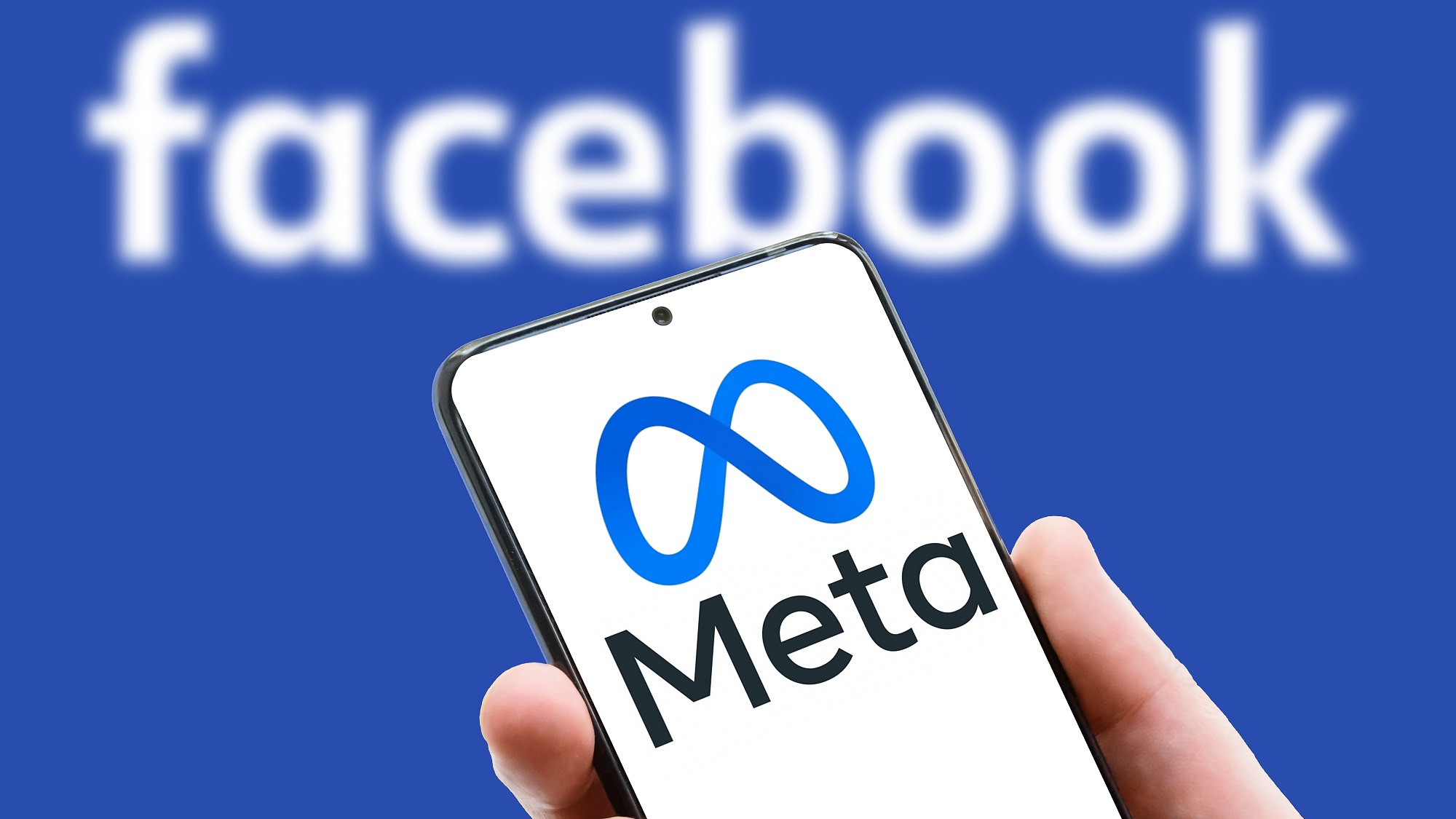Meta AR glasses reportedly coming in 2024 — everything we know so far
Mark Zuckerberg wants an 'iPhone moment'

Update: Job listings suggest Amazon may also be working on an AR device - could it be AR Echo Frames?
AR glasses are hard work, and so far the best efforts of Silicon Valley have come up short. Whether it’s limited functionality, required smartphone connections or bulky bug-eyed designs, this is a category that has yet to take off. Facebook / Meta is undeterred, though, and a new report claims the company is pushing to get its own AR glasses launched by 2024.
That’s according to one former Meta employee who told The Verge that “Zuck’s ego is intertwined with [the glasses]. He wants it to be an iPhone moment”. Here’s what we know so far.
Meta AR Glasses: Rumored price and availability
According to The Verge, Facebook’s plan is to start selling AR glasses, currently named Project Nazare, in 2024. A smartphone-connected version of the glasses, codenamed Hypernova, might arrive in 2024 for a lower price point.
While pricing for the Meta AR glasses is still unknown, the Verge report says the device will cost more than the Oculus Quest 2 VR headset, given "that the AR glasses bill of materials is multiple thousands of dollars." The sales expectations are low, at least initially.
Facebook/Meta is reportedly expecting first generation glasses to appeal to developers and early adopters, rather than mainstream consumers. That means it only expects to sell “tens of thousands” of the first-gen glasses, but aims to be selling “tens of millions” of smart glasses by the end of the decade.
As is the way with these things, the plan is to offer lighter and more advanced models around two years later. If the current launch plans are on schedule, it means they would likely arrive sometime in 2026. The third version is then likely to arrive in 2028.
Get instant access to breaking news, the hottest reviews, great deals and helpful tips.
Meta AR Glasses: Design and features
The idea behind the Meta Glasses is to offer a standalone device, though the first generation glasses are said to have a wireless “phone-shaped” device that can handle some of the computing power.
The standalone model is said to feature a “socially acceptable design," whatever that means, and weighs 100 grams/3.5 ounces. The design is said to look similar to the glasses worn by Clark Kent (Christopher Reeve) in the original Superman movies.
As for the displays themselves, Facebook has apparently gone all in. Each display is powered by an expensive custom waveguide, with microLED projectors, and stereo audio in the frame. The glasses are also said to feature eye tracking and outward facing cameras — which isn’t going to please a lot of people given Facebook’s patchy track record with privacy.
The glasses don’t have such a great field of view (FOV), however, and reportedly have less than 70 degrees. For reference the Oculus Quest 2 has a FOV of around 89 degrees, while some of the best VR headsets like the Valve Index offer up to 130 degrees. Battery life is reportedly just four hours, and they’re supposedly designed for indoor use only.
The glasses may also be bundled with controlling wristbands, which Facebook unveiled last year.
As to what the glasses can do, it seems like very little is off limits. For starters, Mark Zuckerberg apparently wants the glasses to offer a sort of holographic video calling feature. That means users will see the person they’re talking to, or their avatar at least, projected in front of them in augmented reality. More immersive than FaceTime is apparently the aim.
Meta AR Glasses: Development
Zuckerberg sees the glasses as a way to leave the shadow of smartphone giants Apple and Google — both of whom have varying augmented reality ambitions of their own.
Given the conflict between Apple and Facebook/Meta over ad-tracking, this is not surprising to hear. Especially since a move towards independence would free the company to operate under its own rules — rather than those of a different platform. For better or worse.
It may also explain reports of his overenthusiasm for the project, with Zuckerberg himself admitting that employees refer to him as the “Eye of Sauron”. Though the CEO mustn't have understood Lord of the Rings, since he claimed it came from a place of love.
The launch of independent glasses would similarly be a huge step forward for the company’s metaverse goals, since AR glasses wouldn’t require users to wear comparatively bulky headsets that seal them off from the world.
Of course, this isn’t the first time we’ve heard about Facebook’s smart glasses ambitions. Last year Facebook launched a set of smart sunglasses made in conjunction with Ray Ban, though these skipped over any AR or VR capabilities.
Meta AR Glasses vs Apple Glasses
The Facebook glasses will apparently have stiff competition. Apple has already made a big deal out of augmented reality, and there have been dozens of rumors discussing the future launch of Apple Glasses.
While Apple’s AR specs are reportedly designed to look and feel like ordinary glasses, they aren’t likely to be a standalone device. Instead the rumors claim they’ll wirelessly link to an iPhone or some other Apple device.
But the Apple Glasses development has been slow, from what we’ve heard. Apple is reportedly launching an Apple AR/VR headset ahead of Apple Glasses, to give developers and customers more time to adjust to AR as a medium.
However, supply chain and development issues are reportedly causing delays, with the latest rumors claiming the headset won’t arrive until 2023. The Apple Glasses, assuming Apple can deal with the technological hurdles, won’t be arriving until sometime later.
Alongside the obvious issues surrounding brand recognition for Meta. Apple is a big popular company, selling millions of devices each year, and with a public dedication to user privacy. More to the point, the Apple Glasses will likely add extra functionality to devices people already own — offering them an extra incentive to check them out.
Facebook, or Meta, is not Apple. Its reputation has taken a spiral the past few years, especially concerning various privacy scandals. That’s important to consider if you're going to wander around with a device covered in cameras.
Of course, Facebook has extensive experience with VR, thanks to its ownership of Oculus, which can be adapted for augmented reality. That gives it a huge advantage compared to Apple — even if Oculus headsets are significantly more niche products than the iPhone.
Meta AR Glasses: Outlook
After some misses with the likes of Google Glass, tech companies are down to give AR glasses another try. But this time it seems there’s actually a plan, and the specs will do more than just beam notifications in front of your face. The only question is if and when companies like Facebook/Meta can make it happen.
2024 seems rather optimistic, since it’s only two years away, but Facebook does have extensive experience at putting content directly in front of peoples’ eyes. Coupled with Mark Zuckerberg’s unbridled enthusiasm for the project, it gives the company a fighting chance at succeeding.
The only question is whether consumers will care. It’s all well and good anticipating slow adoption, but people will need a very good reason to pick up something new and wear it — especially if it’s expensive. Facebook doesn’t have the same advantages as Apple, with no widespread ecosystem to fall back on, and getting people on board will be an uphill challenge.
We’ll be bringing you updates as we get them. In the meantime, check out the best VR headsets and the best Oculus Quest 2 games and experiences.

Tom is the Tom's Guide's UK Phones Editor, tackling the latest smartphone news and vocally expressing his opinions about upcoming features or changes. It's long way from his days as editor of Gizmodo UK, when pretty much everything was on the table. He’s usually found trying to squeeze another giant Lego set onto the shelf, draining very large cups of coffee, or complaining about how terrible his Smart TV is.
